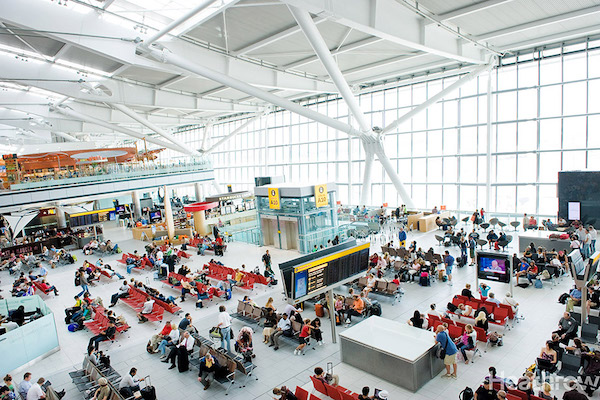Recently released data from the Office for National Statistics underscores the pivotal role travel and tourism play in the UK economy.
The latest figures reveal a substantial increase in travel exports, prompting industry leaders to call on the government for strategic support and recognition.
The Office for National Statistics (ONS) has reported a remarkable £700 million increase in travel exports during the first quarter. The travel sector has emerged as the leading contributor to export growth, outpacing other industries.
Both imports and exports in travel services have seen a notable rise, marking a significant change in the sector’s economic landscape as shown in the latest data.
Kate Nicholls, CEO of UKHospitality, highlighted the positive implications of the GDP figures, stating they could bolster consumer confidence and benefit hospitality businesses.
Nicholls emphasised that travel and tourism significantly contribute as export products, calling on government attention to the sector’s strategic importance.
She pointed out the challenges faced by hospitality due to static GDP figures, urging for cost reductions to stimulate business growth.
Industry experts believe that fully utilising the hospitality, tourism, and travel sectors can drive national economic ambitions.
They argue that recognising these sectors’ potential is crucial for facilitating investment, job creation, and urban regeneration across the UK.
Moreover, addressing cost burdens will be vital to unlock these benefits.
ABTA continues to assert the indispensable role of outbound travel in fuelling the UK’s economic growth.
The organisation advocates for government policies that support outbound travel as it stimulates demand within the overall economy.
Outbound travel not only contributes to export figures but also generates a ripple effect benefiting various sectors.
There is a growing consensus that government intervention is required to harness the full potential of travel and tourism.
Policies that reduce operational costs and encourage investment are deemed essential for advancing the sector.
Industry leaders are calling for measures that enable businesses to invest, thereby promoting sustainable economic growth.
The economic contribution of travel and tourism extends beyond mere figures. It plays a vital role in shaping the UK’s global economic positioning.
Government recognition can enable strategic investments and collaborations that enhance the sector’s international competitiveness.
An integrated approach could also lead to job creation and revitalisation of local economies.
Industry stakeholders remain optimistic about the future if the government acknowledges and acts on the sector’s importance.
The call for action is clear: align policy frameworks to support robust growth in the travel and tourism industry.
There is an urgent need for a collaborative approach to realise the potential economic benefits.
The compelling data from the ONS highlights the critical economic role of travel and tourism.
Strategic support from the government can stimulate further growth, creating wider economic benefits for the country.

